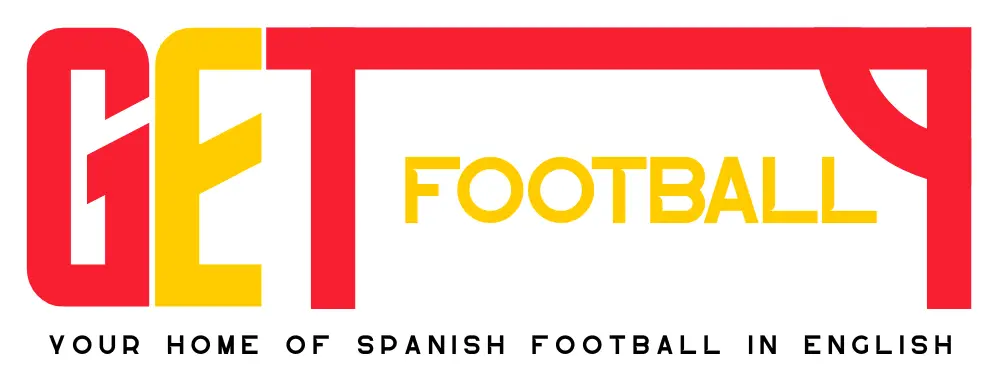This piece is taken from Issue 2 of The Modern Footballer, Get Football’s publication dedicated to European football. It includes in-depth analysis of the latest goings-on at the continent’s biggest clubs, a range of player profiles, and feature articles. You can get your hands on a copy of your own for more pieces like this one here.
“Pan para hoy, hambre para mañana” (Bread for today, hunger for tomorrow) is an evaluation that one hears more and more of late regarding the situation at FC Barcelona. The expression, which warns against offering short-term fixes as solutions to long-term problems, has become increasingly synonymous with the presidency of Josep Maria Bartomeu.
The 57-year-old has been the subject of a sustained barrage of criticism which has intensified significantly in the last year. Back in March, vice presidents Emili Rousaud and Enrique Tombas resigned from the board alongside four other directors, and in July former president Joan Laporta became the latest in a long line of figures to publicly take aim at what he and others view as years of egregious economic mismanagement of the club.
Closer to the field, the decision to sack Ernesto Valverde in January as his side sat top of the table has been widely criticised, as have the less-than-convincing attempts to deal with the remnants of an aging squad whose spirit of frustration bordering on defeatism threatens to corrode a once ironclad legacy with each passing week.
In this sense, the very vocal and tangible resentment towards the board in light of the swap deal involving Arthur Melo and Miralem Pjanić represents the tip of a much larger iceberg. Those in favour of the transfer highlight the necessity to provide a longstanding successor to Sergio Busquets, an argument which has failed to pass muster with large sections of the Barcelona support owing to their obvious differences in characteristics. Although Busquets may well be past the apex of his career, the fact remains that he’s still only 32, and the decision to bring in someone a mere two years his junior has raised more than a few eyebrows. Moreover, given the current environment in which senior players – not Quique Setién or his coaching staff – appear to hold sway over the mood of the dressing room, it would be an especially bold and almost certainly ill-advised move should the manager decide to replace Busquets with immediate effect.
However, dissenting voices on some sections of fan media aside, few are suggesting that the replacement of Busquets is anything other than a long term objective for the side, and therein lies the confusion. Indeed, an arguably greater question than that of age is just where the Bosnian will fit in at Barça. Arthur, the player Pjanić is coming in to replace, faced a similar problem during his time at the club. Signed from Grêmio as a defensive midfielder – although one seen as a stylistic successor to Xavi Hernández rather than Busquets, the Brazilian was almost never utilised in a deeper role under Ernesto Valverde who considered Busquets to be indispensable in the pivote position. It is not entirely unthinkable that Pjanić could suffer a similar fate under Setién.
Those who have all but written off the transfer as the latest in a series of bungled decisions of the Bartomeu presidency could well be justified in their thinking. However, amid the wave of pessimism in Catalonia which surrounds this deal, perhaps more attention should be paid to the simple and reassuring fact that in Pjanić, Barcelona have acquired one of the finest midfield organisers in Europe; a world-class talent whose enlightened understanding of the game has been infinitely enhanced by the need throughout his career to redefining himself as a player with the passing of time. He arrived at Juventus in 2016 having previously achieved prominence at Roma as an offensive midfielder noted for his ability to score from distance and create chances high up the pitch, yet under Massimiliano Allegri he was deployed in a far deeper position, seamlessly reigning in his naturally attacking game to effectively marshall the side from further back.
Pjanić has long since proven himself as a player of undeniable quality capable of controlling the pace of matches at the highest level. He also resembles Busquets in the sense that the significance of his input to the outcome of games is frequently undervalued. His contribution to the Juventus side that reached the 2017 Champions’ League final can be easily forgotten, especially given his role as part of a squad remembered chiefly for its ostensibly impenetrable backline of Andrea Barzagli, Leonardo Bonucci and Giorgio Chiellini and from which the names Paulo Dybala and Dani Alves most likely spring to mind before that of the Bosnian. As he steps into a turbulent situation at Barcelona in which his role remains unclear, Pjanić’s pliability and subtle effectiveness as an organiser in midfield may once again prove to be his greatest strengths.
If he hasn’t done so already, Pjanić will soon learn that a player’s success at Barcelona depends on several factors, some of which are invariably outside his control. While this is true for a number of clubs, the fact remains that the more one studies this deal, the more obvious it becomes that the decision to sign Pjanić in place of Arthur was driven primarily by the economic interests of the board rather than by any kind of footballing decision made by Setién (or even Maurizio Sarri) himself, with the Catalan club reportedly needing to balance the books by July 1 to appease Financial Fair Play regulations. As such, Arthur was ‘sold’ before that date with Pjanić then being ‘bought’ afterward using what effectively were the same funds.
However, now that Pjanić is on his way, whether or not he will be given the chance to flourish in the current footballing environment remains to be seen.










